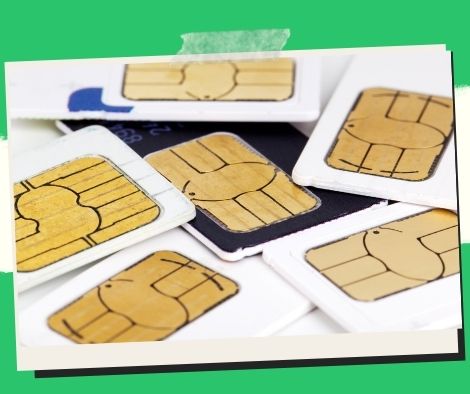
Extended SIM card registration by 90 days
The subscriber identity module (SIM) card registration period will now last for a further 90 days, or until July 25, according to Tuesday’s announcement from Justice Secretary Jesus Crispin Remulla.
However, until they eventually register, members will only have limited access to services after the initial April 26 deadline.
“With the telcos (telecommunications firms), the majority of the services will be discontinued. Therefore, people who do not register within the next 90 days would lose access to social media, Remulla said in an interview after attending a Cabinet cluster meeting.
While the deadline has been extended, Senator Grace Poe urged for an increase in the communication of Republic Act (RA) 11934, also known as the SIM Registration Act.
The delay, according to Poe, who chairs the Senate Committee on Public Services, will assist allay uncertainty and concerns that registrants may have about the law.
It should be stressed that even after the SIM Registration deadline, SIMs will still be offered by neighborhood shops and sari-sari stores. Users would just need to register in order to activate their new SIM cards,” she stated in a statement, praising the decision to prolong the registration period.
“SIM registration was designed to encourage responsible SIM use and prevent scammers and criminals from abusing the system. It is not intended to penalize honest SIM subscribers, particularly those who live in rural areas.
She remembered that during the deliberation of the SIM registration bill, MPs had taken into account the compliance of the more than 168 million SIM subscribers and had anticipated the necessity to extend the registration period to accommodate all users.
The bill’s sponsor in the Senate was Poe.
Data from the National Telecommunications Commission (NTC) as of April 23 indicate that 82,845,397 SIM cards, or 49.31% of them, have been registered.
Following is a breakdown:
5,796,175 or 38.73% of the total
37,099,437 or 42.77 percent in the world
39,949,785 or 60.25 percent of SMART.
Poe renewed her appeal to telecom companies to reach out to the general public in order to gain more subscribers.
“Most telcos have been making enormous profits from their services, so they have a corresponding duty and the required resources to find their SIM users and to increase the opportunity for registration,” she said.
Despite the fact that many locations have been visited for remote registration, Poe observed that more still need to be done because, according to statistics from the NTC, important areas like the Bangsamoro Autonomous Region in Muslim Mindanao have not yet been reached.
She added that despite continuous SIM registration, the Department of Information and Communications Technology (DICT) ought to look into the persistent growth of spam communications.
In the meantime, two days prior to the deadline for SIM card registration, representatives from the country’s three PTEs – Globe, Smart, and DITO – met with the DICT and its affiliated agencies to raise issues over the execution of RA 11934.
The DICT stated in a statement that it had a discussion with the three companies about how to address various problems that the registrants were having, including difficulties getting government-issued identification cards and documentation and methods to streamline the SIM registration procedure.
According to the DICT, registering just requires one of the 17 official IDs and documents that are accepted.
“During the discussion, the potential for extending the SIM registration period was also explored. We suggest everyone wait for the Department’s official declaration on the subject, according to the statement.
Before the deadline, Filipinos are urged to register their SIM cards.
According to the DICT, “the growing number of registrants in the last few days is a clear indication that Filipinos share the desire to eradicate online and text scams forever.”
On October 10, 2022, President Ferdinand R. Marcos Jr. signed RA 11934 into law as his first piece of legislation. Its goal is to combat text- and online-based scams.
The 180-day SIM card registration period was scheduled to start on December 27, 2022, and it was to finish on April 26, 2023.
Sim cards that are currently in use but weren’t registered during the sign-up period will be deactivated, while new cards require registration when they are bought.
Cathy Yang, the head of corporate communications at PLDT-Smart, expressed her appreciation for the extension in a statement because it would offer their subscribers more time to sign up and would enable PTEs to step up their registration campaigns.
“Discussions between the NTC, the mobile network operators, and the DICT are currently underway with relation to the progressive deactivation being considered by the DICT. Due to time restrictions, our preliminary assessment is that it would be challenging for us to implement,” Yang added.
Darius Delgado, the CEO of Globe’s consumer mobile division, praised the expansion and urged their users to sign up by going to their website.
Delgado stated, “If you’re having trouble registering your SIMs, come to our Globe Stores and EasyHubs and we’ll provide you the help you need.
Rep. Luis Raymund Villafuerte Jr. from the Camarines Sur 2nd District claimed that by granting the extension, the government had wisely avoided excluding Filipinos from financial and digital inclusion.
“A non-extension of the registration period will have led to the disenfranchisement of the legion of legitimate SIM owners who had failed to sign up come Wednesday (April 26),” Villafuerte said in a press release. “This will deal a severe blow to the Marcos administration’s efforts to fast-track our country’s digital transformation.”
The three-month grace period, according to him, would enable the DICT, NTC, and PTEs (public telecommunications entities) to step up their list-up campaigns going forward and the government to address issues like onerous identification requirements, spotty or no connectivity, and other technical difficulties thought to be the root of the low registry turnout.
Villafuerte, who co-authored the measure in the House of Representatives, pointed out that the DICT itself acknowledged that a larger register turnout would better give law enforcement the necessary instruments to vigorously prosecute evil organizations that have utilized their SIMs in their cybercrimes.
“Our digital space is gradually becoming safer, so we continue to encourage everyone to register for a calm environment in commerce, livelihood, and way of life,” the statement reads. stated Villafuerte.
Save/Share this story with QR CODE
Disclaimer
This article is for informational purposes only and does not constitute endorsement of any specific technologies or methodologies and financial advice or endorsement of any specific products or services.
 Need to get in touch?
Need to get in touch?

We appreciate your reading. 
1.) 

Your DONATION will be used to fund and maintain NEXTGENDAY.com
Subscribers in the Philippines can make donations to mobile number 0917 906 3081, thru GCash.
3.) 
4.) 
AFFILIATE PARTNERS

World Class Nutritional Supplements - Buy Highest Quality Products, Purest Most Healthy Ingredients, Direct to your Door! Up to 90% OFF.
Join LiveGood Today - A company created to satisfy the world's most demanding leaders and entrepreneurs, with the best compensation plan today.

 Business, Finance & Technology
Business, Finance & Technology





